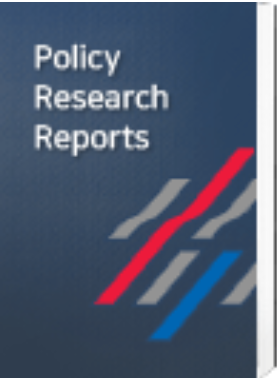Policy Report

RESEARCH
KOTI - Korea Transport institute
A Basic Study on the Utilization of ChatGPT in the Transportation Sector
- Date
November 30 2023
- Page(s)
page(s)
#ChatGPT
#Transportation Sector
#AI
#artificial intelligence

This study was conducted to establish measures for more effective utilization of ChatGPT in the field of transportation research and professional work, addressing the recent issue of ChatGPT. To establish guidelines for the utilization of ChatGPT, this study conducted a literature review, expert seminars, report writing using ChatGPT, a survey to validate its usability, and practical application and evaluation of programming functionalities.
The findings from each of these approaches were synthesized to draw conclusions for the formulation of guidelines. Based on the results of the literature review and expert seminars, it is anticipated that ChatGPT can be utilized not only for programming and report writing but also in various other areas such as English translation, article generation, content creation, idea planning, etc. Particularly in the field of transportation, it was concluded that ChatGPT holds advantages in research tasks, including predicting and categorizing traffic conditions and individual vehicle driving behaviors, providing a distinctive edge in conducting studies in this domain. The qualitative survey results for validating the utility of ChatGPT indicate that among various functions, programming and English translation functionalities exhibit higher usability compared to other features. Additionally, it was found that constructing questions in a detailed and lengthy format is necessary to obtain more comprehensive responses when interacting with ChatGPT. Furthermore, in terms of the current usability of the sections in each report outline (Introduction, Status, Methodology, Outlook), the summary section was identified as the part with the highest current usability.
Finally, the results of utilizing ChatGPT for prediction analysis based on LSTM artificial neural networks and classification analysis using Random Forest indicate that even without specialized programming knowledge, users can perform the desired analyses.This study represents a foundational phase in validating the utility of specific functionalities of ChatGPT. Future research plans include further verification and exploration of various functionalities, aiming to provide guidelines through the concretization of methods for their validation and utilization.
The findings from each of these approaches were synthesized to draw conclusions for the formulation of guidelines. Based on the results of the literature review and expert seminars, it is anticipated that ChatGPT can be utilized not only for programming and report writing but also in various other areas such as English translation, article generation, content creation, idea planning, etc. Particularly in the field of transportation, it was concluded that ChatGPT holds advantages in research tasks, including predicting and categorizing traffic conditions and individual vehicle driving behaviors, providing a distinctive edge in conducting studies in this domain. The qualitative survey results for validating the utility of ChatGPT indicate that among various functions, programming and English translation functionalities exhibit higher usability compared to other features. Additionally, it was found that constructing questions in a detailed and lengthy format is necessary to obtain more comprehensive responses when interacting with ChatGPT. Furthermore, in terms of the current usability of the sections in each report outline (Introduction, Status, Methodology, Outlook), the summary section was identified as the part with the highest current usability.
Finally, the results of utilizing ChatGPT for prediction analysis based on LSTM artificial neural networks and classification analysis using Random Forest indicate that even without specialized programming knowledge, users can perform the desired analyses.This study represents a foundational phase in validating the utility of specific functionalities of ChatGPT. Future research plans include further verification and exploration of various functionalities, aiming to provide guidelines through the concretization of methods for their validation and utilization.